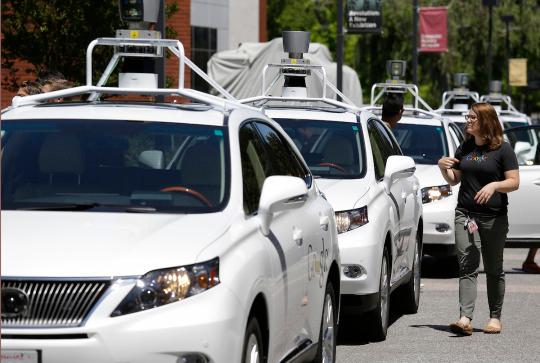With Self-Driving Cars Coming, What Happens To Millions Of Jobs In The ‘Crash’ Economy?

If you’ve been paying attention to the buzz surrounding autonomous and self-driving vehicles over the past couple years, you’ve likely heard the arguments about whether they might one day take the wheel from us. While enthusiasts wring their hands over losing control, and others worry about security and privacy, advocates tout the potentially huge advantages of a fleet of vehicles which almost never crash.
A 2012 study by KPMG and the Center for Automotive Research (CAR) predicts that a self-driving fleet could eliminate 93 percent of crashes attributed to human error. The savings in lives, injuries, insurance claims, delays, lost productivity and more would be substantial (so much so that a few prognosticators have imagined a world where non self-driving cars would be banned in the name of public safety.)
But if the technologists, business-government interests, and early adopters pushing for autonomous driving are right, there’s one thing that’s been left out of the conversation: If cars and trucks don’t crash, what happens to the millions of jobs supported by driving today?
Call it the crash economy — not just because of how it’s grown, but where it may be heading.

If you’ve been paying attention to the buzz surrounding autonomous and self-driving vehicles over the past couple years, you’ve likely heard the arguments about whether they might one day take the wheel from us. While enthusiasts wring their hands over losing control, and others worry about security and privacy, advocates tout the potentially huge advantages of a fleet of vehicles which almost never crash.
A 2012 study by KPMG and the Center for Automotive Research (CAR) predicts that a self-driving fleet could eliminate 93 percent of crashes attributed to human error. The savings in lives, injuries, insurance claims, delays, lost productivity and more would be substantial (so much so that a few prognosticators have imagined a world where non self-driving cars would be banned in the name of public safety.)
But if the technologists, business-government interests, and early adopters pushing for autonomous driving are right, there’s one thing that’s been left out of the conversation: If cars and trucks don’t crash, what happens to the millions of jobs supported by driving today?
Call it the crash economy — not just because of how it’s grown, but where it may be heading.
